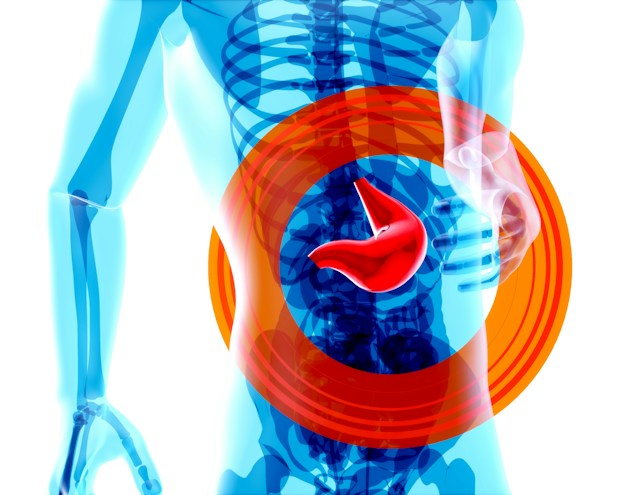Hepatitis is a common, possibly dangerous illness that affects millions of people globally. It is characterised by mild to severe liver inflammation, which, if uncontrolled, can result in liver cancer, long-term liver damage, or even death. We will examine the causes, forms, important information, modes of transmission, suggested vaccinations, and various therapies for hepatitis in this thorough overview. Alcohol misuse, viral infections, and certain drugs are among the many causes of hepatitis, an inflammatory disease of the liver. With several hepatitis virus strains generating diverse degrees of sickness and impacting individuals of all ages, it is a major worldwide health problem. It is essential to comprehend the forms, causes, modes of transmission, and preventative measures in order to properly manage this ailment.
Hepatitis Types
Based on its origins and features, hepatitis can be divided into several types:
Acute Hepatitis
Acute hepatitis is a transient illness that frequently goes away on its own. HAV, HBV, or HCV are the main causes of acute hepatitis. Fatigue, nausea, stomach discomfort, and jaundice (yellowing of the skin and eyes) are some of the symptoms.
Prolonged Hepatitis
Chronic hepatitis is a persistent infection that continuously damages and inflames the liver. The main causes of chronic hepatitis are HBV and HCV infections. It may eventually develop into liver cancer, liver failure, or liver cirrhosis.

Hepatitis A
Typically, hepatitis A is an acute infection that does not progress to a chronic state. It can produce flu-like symptoms and is mostly spread via tainted food and drink.
Hepatitis B
Acute and chronic infections are both possible outcomes of hepatitis B. Contact with contaminated blood, semen, or other bodily fluids can spread the infection. There is a vaccine available to protect against HBV infection.
Hepatitis C
Hepatitis C can seriously damage the liver and frequently becomes chronic. The main method of transmission is blood-to-blood contact. Although there is no vaccination for HCV, many instances can be cured with antiviral drugs.
Hepatitis D
Hepatitis D is an HBV infection complication that exclusively develops in those who have already had HBV. It may result in liver disease that is more severe.
Hepatitis E
Hepatitis E is often acute and spreads by tainted food and water. It is more prevalent in underdeveloped nations and usually goes away on its own.
Important Hepatitis Facts
The following important information can help you comprehend hepatitis:
Silent Progression: Until the liver sustains severe damage, hepatitis can advance silently with no obvious signs. It is crucial to have routine examinations and screenings, particularly for those who are at risk.
Preventable: Several cases of hepatitis can be avoided by getting vaccinated, having safe sexual relations, not sharing needles, and maintaining proper hygiene, including frequent hand washing.
Global Burden: Over 325 million individuals worldwide suffer from chronic hepatitis infections, making hepatitis a major public health concern. Every year, it is the cause of about 1.34 million fatalities.
Liver Cirrhosis: When good liver tissue is replaced by scar tissue, a disease known as liver cirrhosis is brought on by chronic hepatitis. Liver failure and the requirement for a liver transplant may arise from this.

Risk of Liver Cancer: People with long-term hepatitis, particularly those with HBV and HCV infections, are more likely to develop liver cancer. For early detection, regular monitoring is essential.
Asymptomatic: Since many hepatitis patients may not exhibit any symptoms, screening for the virus is crucial, particularly in high-risk groups.
The spread of hepatitis: How?
Prevention requires an understanding of the hepatitis virus’s mode of transmission. The following are the main routes of transmission for hepatitis viruses:
Hepatitis A
– Eating or drinking tainted food or water.
– Close contact with an infected individual, especially in families or childcare settings.
Hepatitis B
– Unprotected sexual intercourse with an infected individual.
– Sharing needles or other drug paraphernalia.
– Transmission from mother to kid during delivery.
– Contact with contaminated blood or bodily fluids through wounds or cuts.
Hepatitis C
– Sharing needles or other drug paraphernalia.
– Receiving a blood transfusion with tainted blood (rare owing to blood screening).
– Accidental needlestick injuries in hospital settings.
Hepatitis D
– Only affects those who have previously contracted HBV. – Disseminates via the same pathways as HBV.
– Close contact with an infected individual, especially in families or childcare settings.
Hepatitis E
– Eating or drinking tainted food or water; – Comparable to the HAV’s transmission vectors.
Not Viral Reasons
– Excessive alcohol consumption.
– Specific drugs and poisons.
– Liver illness caused by autoimmune disorders.
Who Needs to Get a Hepatitis Vaccination?
One very effective way to avoid contracting hepatitis is to be vaccinated. The following individuals are suggested candidates for hepatitis vaccinations:
The Hepatitis A Vaccine
Travellers: People going to places where HAV is highly prevalent.
For those suffering from chronic liver disease: To stop more liver damage.
Users of illegal drugs: Especially those who share equipment.

The Hepatitis B Vaccine
Newborns: Shortly after delivery, all babies should have the hepatitis B vaccination.
Healthcare professionals: Owing to possible contact with contaminated blood.Sexual partners of those who have the infection: in order to stop the gearbox.
Injectable drug users: To avoid transmission through needle sharing.
For those suffering from chronic liver disease: To stop more liver damage.
Travellers: Depending on destination and risk factors.
Hepatitis treatment
The kind and severity of the illness determine the course of treatment for hepatitis. The following are the main methods for treating hepatitis:
A. Supportive Care for Acute Hepatitis: Rest, enough fluids, and food
Antiviral Drugs: Antiviral drugs, such as those for hepatitis B and C, may be recommended in specific situations.
B. Persistent Hepatitis
Antiviral Drugs: Antiviral medications can be used to treat hepatitis B and C. The disease’s development may be slowed down or perhaps stopped by these drugs.
Liver Transplant: A liver transplant may be required in situations of severe liver failure or liver cirrhosis.
C. Complete Alcohol Abstinence: The most important component of treatment for alcoholic hepatitis is abstinence from alcohol.
Nutritional Support: Supplementation may be necessary due to the prevalence of nutritional deficits.
Medication: To lessen liver inflammation, doctors may occasionally administer pentoxifylline or corticosteroids.
D. Immune-mediated Hepatitis
Immunosuppressive Medications: To control the illness and lessen inflammation, medications that inhibit the immune system’s reaction are used.
It’s critical to remember that improved treatment outcomes depend on early identification and action. For those who are at risk of contracting hepatitis, routine medical examinations and screenings are necessary.
You may also like:

A Wisconsin license plate search enables you to obtain information about a vehicle using its license plate number. This search can provide details such as the vehicle’s make, model, year, and VIN, while personal owner information is protected by privacy laws. You can conduct these searches through the Wisconsin Department of Transportation (WisDOT) or authorized third-party services. This tool is useful for verifying vehicle details, checking a car’s history, and investigating legal matters, all while complying with privacy regulations.